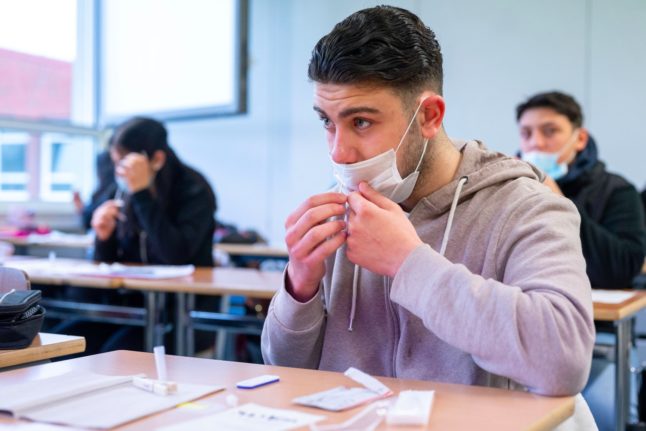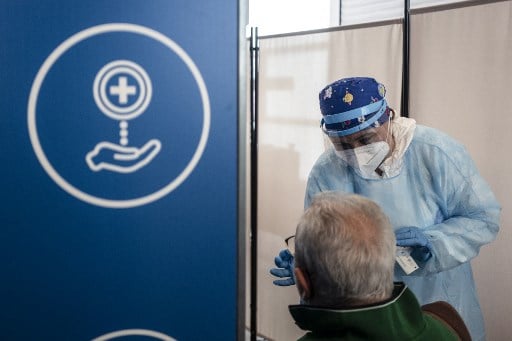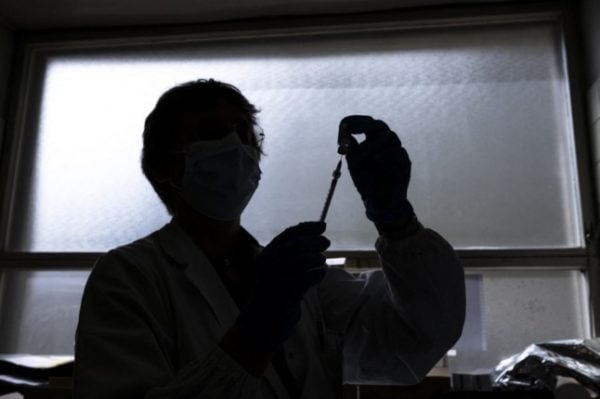The German firm’s CEO Ugur Sahin told Der Spiegel weekly that it was “in the final stretches” of preparing its submission for European regulatory approval.
The evaluation of the trial data “takes four to six weeks on average”, he added.
Vaccinating children is seen as a crucial next step toward herd immunity and ending the pandemic.
The prospect of getting older children inoculated before the next school year starts would also relieve the strain on parents who are juggling the demands of homeschooling while keeping up with jobs.
“It’s very important to enable children a return to their normal school lives and allow them to meet with family and friends,” Sahin told Spiegel.
READ ALSO: German doctors call for faster vaccination of young people
BioNTech/Pfizer already applied for emergency US authorisation of their jab for 12 to 15-year-olds earlier this month.
Sahin expects to submit a similar request to the European Medicines Agency (EMA) next Wednesday, he told Spiegel.
The move comes after BioNTech and Pfizer in late March announced that phase 3 clinical trials of their vaccine for children aged 12-15 showed it was 100 percent effective in warding off the disease.
Both companies are also racing to get the jab approved for younger children, from six months upwards.
“In July, the first results for five to 12-year-olds could be available, and those for younger children in September,” he said.
Ongoing trials so far are “very encouraging”, Sahin said, suggesting that “children are very well protected by the vaccine”.
BioNTech was founded in Mainz by husband and wife team Ugur Sahin and his wife Özlem Türeci. They teamed up with US pharma company Pfizer to produce the shot which is based on novel mRNA technology, and was the first Covid-19 jab to be approved in the West late last year.
‘Immense stress for children’
Calls have been growing to vaccinate children in Germany as soon as possible.
Although no scientifically proven data is available yet, studies suggest that children suffer significantly more from long-term psychological effects than adults, because they lack social contacts more.
According to a representative online survey by the University Medical Center Hamburg-Eppendorf, 40 percent of the 11 to 17-year-olds stated that their quality of life had deteriorated during the pandemic, 44 percent complained of sleep disorders and a third of depression.
Children from poor and socially disadvantaged households are particularly affected. During the coronavirus pandemic, violence in families also appears to have increased – especially in areas where problems existed before.
READ ALSO: ‘More young people will become ill’: Germany facing tough battle against Covid-19 variants
“The level of stress is high and the psychological strain for children is immense,” founder of the Arche children’s project, Bernd Siggelkow told DPA.




 Please whitelist us to continue reading.
Please whitelist us to continue reading.
What about the 30 to 60 year olds. Yes children are important and the elderly are important But honestly the 30 to 60 year old need to get back to Norma life as well. I haven’t seen my children in 2 years. Time to get enough vaccine for all and open up the vaccine centers. Time for mass vaccinations. Germans and all Europeans have waited long enough!!!!!! Rant done ✅